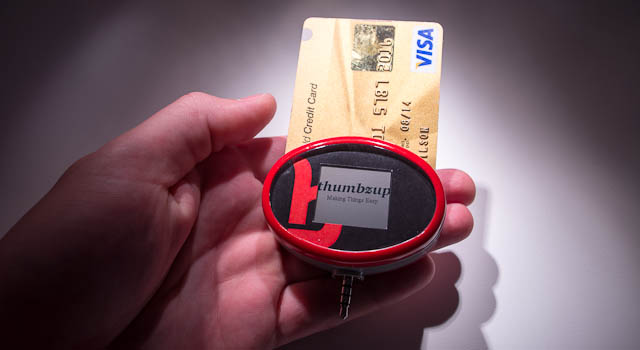
Absa is launching a new piece of hardware called the Pebble that can be used to accept payments from chip-and-pin or magnetic credit and debit cards using a mobile phone, tablet computer or PC.
The retail-banking group has introduced the product, which is similar to popular US solution Square, in partnership with local technology company Thumbzup. Thumbzup was founded by well-known technology investor and entrepreneur Stafford Masie.
The Pebble connects to a 3,5mm audio jack and has both a slot for chip-and-pin cards and another for swiping magnetic cards. At launch, it will work with Visa or MasterCard and there are applications for Apple’s iOS, Google’s Android and BlackBerry devices.
Masie says the device is aimed at small businesses, entrepreneurs and anyone else who wants to accept mobile payments in real time.
The Pebble will be distributed through Absa’s channels and sales force.
In addition to the hardware, Absa will release an “application programming interface” to allow developers to write applications that can accept card payments using the device.
“A mobile application from, for example, a ticket company, will be able to accept payment directly from the device by plugging in the Pebble.”
Masie says the decision to use the 3,5mm port on phones was motivated by its universality and sustainability. “We opted for extreme simplicity,” he says. “There’s no need for Bluetooth, the device arrives preconfigured, and there’s a rechargeable battery in the Pebble that takes power from the device it’s connected to.”

The Pebble is expected to have a usable life of two to three years and Masie says the bill of materials comes in at less than US$40. The security mechanisms are the same as those seen in conventional point-of-sale devices.
Each device is marked with a printed hologram to ensure authenticity. The display uses e-ink technology to reduce power consumption and ensure legibility in daylight. The machine can be activated, deactivated and reactivated remotely.
Absa plans to offer the device via overnight delivery and applicants will have to provide the same legal documentation they would for other banking products.
When making a payment users enter their pin using an on-screen scroll wheel, a unique Thumbzup invention which has been globally patented. When a payment is completed, users can opt to send payment confirmation directly from the payment app.
To cater for those who might be reluctant to enter their pin on a device, and as a backup, Absa will also offer users a numeric keypad that plugs into the Pebble and allows for traditional pin entry. The keypad is charged via micro-USB and has a built-in Sim card so that it can operate autonomously.
“The phone is just the modem,” says Masie. It can work over 2G if necessary because it’s an extremely light ‘packet’. On the keypad it works in a similar manner.” The card data is never stored on the mobile device.
Willie van Zyl, head of card acquiring and commercial cards at Absa, says that although electronic funds transfers, cheques and cash are still important for business, “something has been missing”.
“What’s been missing is the ability for a small business owner, entrepreneur or someone doing site visits to collect payments anywhere in real time,” Van Zyl says. “We believe there are around 400 000 merchants on the periphery that have a desperate need for something like this.”
Absa hasn’t finalised the cost of the device but Van Zyl suggests that the Pebble will be provided at low cost with the bank charging merchants a fee for each transaction, much like it does for conventional card payments.
The device will be available from the first quarter of next year. — (c) 2012 NewsCentral Media




